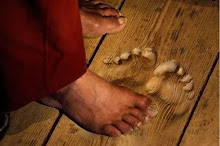Young children—even toddlers—are spending more and more time with digital technology. What will it mean for their development?
from: The Atlantic
"...What, really, would Maria Montessori have made of this scene? The 30 or so children here were not down at the shore poking their fingers in the sand or running them along mossy stones or digging for hermit crabs. Instead they were all inside, alone or in groups of two or three, their faces a few inches from a screen, their hands doing things Montessori surely did not imagine. A couple of 3-year-old girls were leaning against a pair of French doors, reading an interactive story called Ten Giggly Gorillas and fighting over which ape to tickle next. A boy in a nearby corner had turned his fingertip into a red marker to draw an ugly picture of his older brother. On an old oak table at the front of the room, a giant stuffed Angry Bird beckoned the children to come and test out tablets loaded with dozens of new apps. Some of the chairs had pillows strapped to them, since an 18-month-old might not otherwise be able to reach the table, though she’d know how to swipe once she did.
Not that long ago, there was only the television, which theoretically could be kept in the parents’ bedroom or locked behind a cabinet. Now there are smartphones and iPads, which wash up in the domestic clutter alongside keys and gum and stray hair ties. “Mom, everyone has technology but me!” my 4-year-old son sometimes wails. And why shouldn’t he feel entitled? In the same span of time it took him to learn how to say that sentence, thousands of kids’ apps have been developed—the majority aimed at preschoolers like him. To us (his parents, I mean), American childhood has undergone a somewhat alarming transformation in a very short time. But to him, it has always been possible to do so many things with the swipe of a finger, to have hundreds of games packed into a gadget the same size as Goodnight Moon...."
-and-
“We live in a screen age, and to say to a kid, ‘I’d love for you to look at a book but I hate it when you look at the screen’ is just bizarre. It reflects our own prejudices and comfort zone. It’s nothing but fear of change, of being left out.”
(More)
24 March 2013
Subscribe to:
Post Comments (Atom)












No comments:
Post a Comment